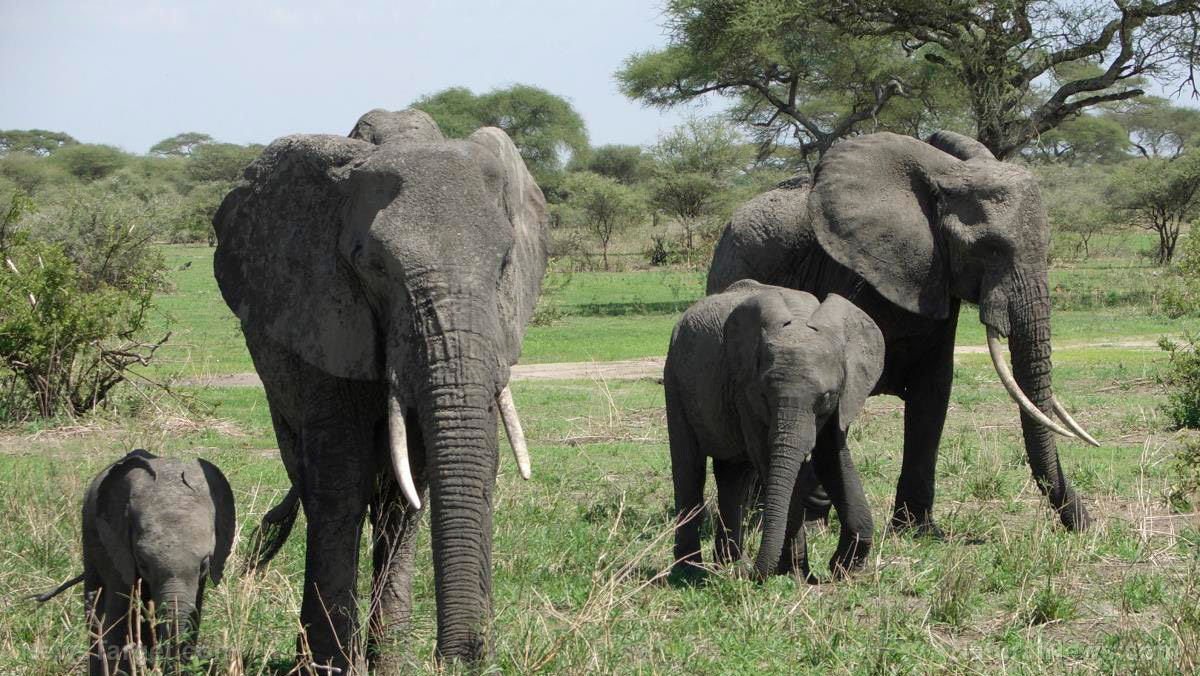
Tigers that live in the deepest habitats push two other predators — leopards and dholes (a type of wild dog) — away and closer to human villages and agricultural places. Despite the setup, this doesn't endanger the people and the livestock. In fact, leopards and dholes prey on smaller plant-eating animals like wild pigs that consume the farmers’ crops.
The crops – and the farmers who planted them – win in the end.
It also allows livestock to thrive as well. In Bhutan, domestic animals usually roam the forests surrounding the villages. You'd think these tigers would prey on livestock when they enter forests, but there aren't a lot of tigers left in the area. Moreover, leopards and dholes, which should be the main predators, have already been pushed towards croplands – where there are fewer livestock animals. The result – an overall reduction in livestock losses.
"Livestock and crop losses are two big issues faced by the agro-pastoralists in Bhutan," explained lead author Phuntsho Thinley, who is also a principal research officer with the Ugyen Wangchuck Institute for Conservation and Environment Research in Bhutan. "I wanted to study the core underlying causes of the issues in order to devise pragmatic solutions."
Thinley and his colleagues surmised that the presence of a tiger would drastically lessen crop damage due to herbivores. That means adding $450 a year in each family’s pockets. Livestock losses would also go down to an average of 2.4 animals per farm, or a savings of $1,120 a year.
Since per capita income of Bhutan is around $2,200, that’s an economic windfall from the tigers.
The good news is, the Bhutan government is using the results of Thinley's studies to help local farmers. He says that the national government is including his recommendations in its environmental conservation plans.
John Goodrich, senior tiger program director for Panthera, a global wild-cat conservation organization, also finds the study useful and thinks it could be applied elsewhere.
For one, it could take the blame off tigers for livestock losses. It could also reduce the snares around crops which traps not just herbivores but anything that comes near.
The study is also a big boost to tigers, whose numbers are dwindling – no thanks to poaching and habitat loss. In the last 80 years, three of the original nine subspecies of tigers have become extinct: The situation has grown so bad, all wild tigers may become extinct in the next decade. (Related: Your toilet or tissue paper may be contributing to extinction of tigers.)
Practical ways to save the tiger
How then, do you save this big cat from the brink of extinction? Here are some ways you can help:
- Spread the word - Let others know that the tiger and its habitat are in danger and that the animals need help. You can hold forums (or join existing ones) on the web to discuss and exchange ideas on tiger conservation.
- Be a good tourist - Enjoy the wilderness, but don't disturb or harm it in any way. Follow the rules and guidelines in tiger reserves.
- Reach out to policymakers - Send polite emails to decision-makers who can help conserve the tiger population. Contact your local officials as well.
- Reject tiger trade - Don't buy tiger parts and items from tiger derivatives.
When you save tigers, you also help farmers and livestock growers earn more. You not only help save a species from extinction, but you also help an entire community.
Read Discoveries.news for more fascinating scientific discoveries.
Sources include:
Please contact us for more information.























